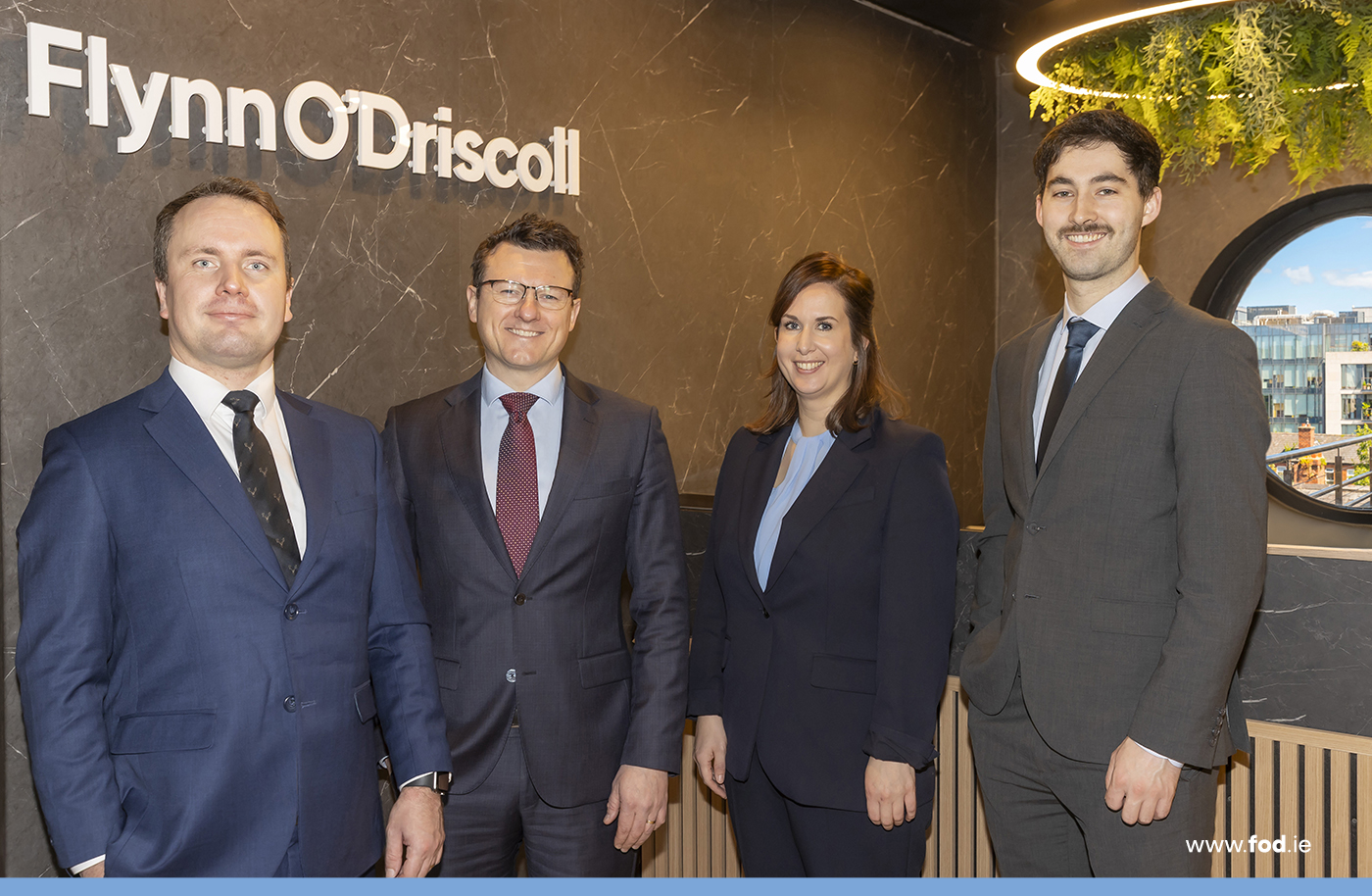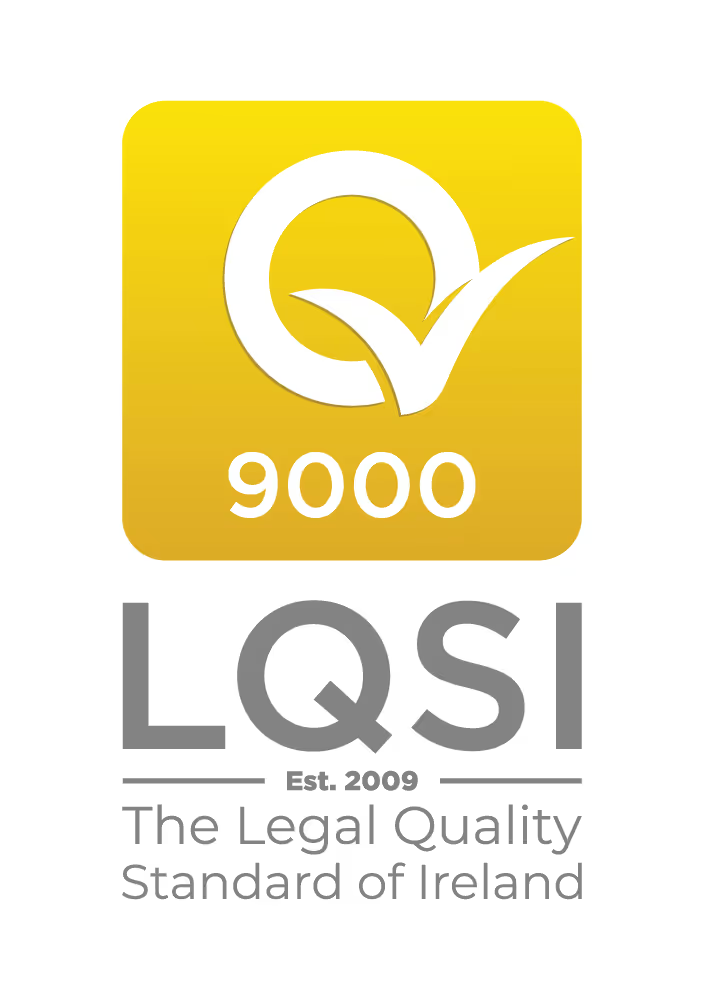The European Union (Anti-Money Laundering: Beneficial Ownership of Trusts) Regulations 2021 (the “Regulations”) came into operation on 24 April 2021. The Regulations apply a similar beneficial ownership regime to express trusts as already applies to companies by way of earlier beneficial ownership regulations. One of the key objectives of the Regulations is to promote transparency of beneficial ownership information with respect to express trusts.
There are two (2) key strands to compliance with the Regulations:
(i) The obligation of trustees of in-scope trustees to “take all reasonable steps to obtain and hold adequate, accurate and current information in respect of the trust’s beneficial owners” in an internal ownership register;
and(ii) The obligation of such trustees to file beneficial ownership information to the Revenue Commissioner’s CRBOT central register (the “Central Register”). Trustees of existing express trusts will have until 23 October 2021 to make these filings.
What Express Trusts are caught by the Regulations?
The Regulations apply to express trusts established by deed or other declaration in writing where the trustee is resident in, or the trust is administered, in Ireland. “Express trust” is not a defined term in the Regulations, but the Revenue Commissioners describe it as a trust “created in express terms, as distinguished from one inferred from the conduct or dealings of the parties”.The Revenue Commissioners give examples of the kinds of services which would cause a trust to be considered to be “administered in Ireland”. These include services such as the management of trust assets or other services provided to the trust by legal or accounting professionals or other trust service providers who are operating in the State.
If none of the trustees are resident in a European Union (the “EU”) Member State and the trust is not administered in the EU, the Regulations apply where the trustee enters into a business relationship in the State in their capacity as trustee or acquires land or other real property in the State in the name of the trust. In such instances, the Regulations apply to the trust as long as the business relationship exists or the land or other real property continues to be held by a trustee of the trust.
New Regulations on the Beneficial Ownership of Express Trusts
There are no minimum thresholds for an express trust to be caught by the Regulations such as an exemption for trusts which are of temporary duration, with the result that trust arrangements such as private family trusts, security trust arrangements, declarations of trust in respect of shares and powers of attorney, are therefore required to comply with the Regulations.
What Express Trusts are excluded from the Regulations?
There is a list of excluded arrangements in the Criminal Justice (Money Laundering and Terrorist Financing) Act 2010, which includes:
(i) Occupational pension schemes approved pursuant to the Taxes Consolidation Act 1997 (the “TCA”);
(ii) Approved retirement funds within the meaning of the TCA;
(iii) Profit sharing schemes or employee share ownership trusts approved pursuant to the TCA;
(iv) Trusts for restricted shares within the meaning of the TCA;
(v) Unit trusts within the meaning of the European Union (Modifications of Statutory Instrument No 110 of 2019) (Registration of Beneficial Ownership of Certain Financial Vehicles) Regulations 2020;
and(vi) Such other arrangements or classes of arrangement as may be prescribed.
Who are Beneficial Owners?
Beneficial owners are defined as:(vii) Any individual who is entitled to a vested interest in possession, remainder or reversion, in the capital of the relevant trust property;(viii) The class of individuals in whose interest the trust is set up or operates;(ix) Any individual who has control over the relevant trust;(x) The settlor;(xi) The trustee; or(xii) The protector.Where an EU legal entity is a beneficiary, details of the entity’s beneficial ownership must be obtained by the trustee and filed both internally and in the Central Register.If a legal entity is a beneficiary of a relevant trust and has registered its beneficial ownership information on another central register either in Ireland or another EU Member State, the trustee need obtain only limited information in respect of the legal entity.
Where a non-EU legal entity is a beneficiary, the trustee must “take all reasonable steps to obtain and hold the information… as respect of any individuals, constituted through that legal entity, as beneficial owners of the trust”.
What Trustees must do on the Central Register?
The following information must be delivered by the trustee:(xiii) The name, date of birth, nationality and residential address of each beneficial owner of the trust;(xiv) A statement of the nature and extent of the interest held, or the nature and extent of control exercised by, each such beneficial owner; and(xv) In the case of a relevant trust other than one that is set up or operates entirely for the benefit of individuals, the class of individuals in whose interest the trust is set up or operates.
How does a Trustee Register the Beneficial Ownership Information?
Trustees will register through the “Trust Register” portal on the Revenue Commissioner’s Online Service (“ROS”) and individual filers who do not have a business tax registration number will register through the Revenue Commissioner’s MyAccount. For trusts that were established on or before 23 April 2021, the registration deadline is 23 October 2021. Trusts created after 23 April 2021 must file within six (6) months of their creation. Each trust registered will be allocated a registration number. Revenue Commissioners’ records will not be used to update the Central Register.
Who has access to the Central Register?
Competent authorities, such as the Revenue Commissioners and An Garda Siochana, have unrestricted access to the Central Register.Designated persons, such as banks and financial institutions, will have restricted access and will require beneficial ownership information before entering into a business relationship or carrying out any transactions on behalf of the trust.Members of the public will have to prove that they have a “legitimate interest” before being granted restricted access.
For more information please contact Claire McDermott, at email: clairemcdermott@fod.ie or phone +353 1 6424259; James Duggan, at email: jamesduggan@fod.ie or phone +353 1 6424252; or any member of the Flynn O’Driscoll Aviation Team.This note is for general information purposes. Legal advice must be obtained for all individual circumstances. Whilst every effort has been made to ensure the accuracy of this note, no liability is accepted by the author or Flynn O’Driscoll LLP for any inaccuracies.







